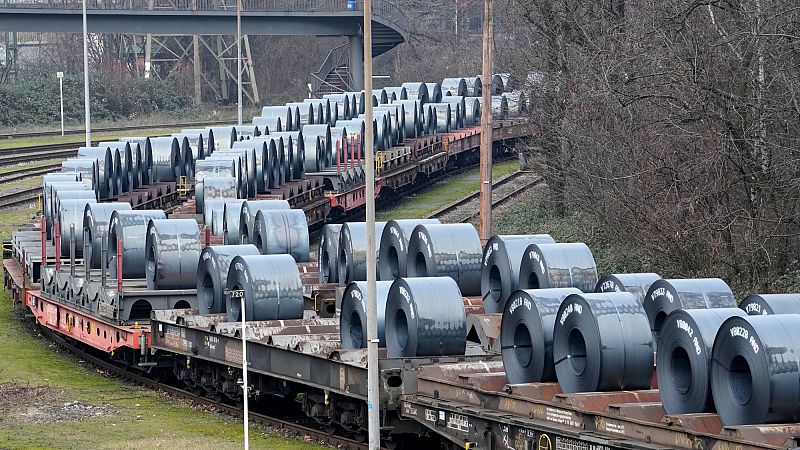

The European Commission plans to pursue more rigorous regulations for importing steel and aluminum because of concerns about redirected international stockpiles potentially flooding their markets. This information comes from a draft document obtained by Euronews.
The document also seeks to prevent nations from isolating themselves from importing waste metals.
The Commission will unveil its concluding action plan for steel and metals on Wednesday. This plan aims to offer guidance on making Europe’s metal manufacturing sector both environmentally sustainable and globally competitive, against the backdrop of strained trade relations with the U.S. and intense international rivalry.
The document indicates that the EU administration anticipates an increase in excess capacity will exacerbate trading conditions within the steel sector once current protective measures conclude on June 30, 2026. The paper suggests that "the issue could intensify as additional nations limit imports, turning the EU into a primary outlet for oversupplied steel."
As stated in the document, "By the third quarter of 2025 at the latest, the Commission will introduce a long-term measure ensuring an equal degree of protection for the EU's steel industry."
"The scheduling of the proposal ensures that the new provision will come into effect promptly to supersede the present safeguards and offer an equivalent level of protection from adverse trade impacts resulting from worldwide excess capacity. This strategy will integrate elements such as tariff quotas, factoring in both security and resilience aspects along with shifts in European Union demand, all while sustaining a specified degree of accessibility for the EU marketplace," the document states.
The European Commission plans to initiate an inquiry into potential safeguard actions concerning the aluminum industry. This move comes as the decline in major market shares held by EU producers combined with the new U.S. tariffs on aluminum are expected to exacerbate conditions even more, posing a considerable risk of trade being redirected away from various sources, according to the document.
The document further stated that current export limitations set by other nations on waste metal shipments should be met with corresponding countermeasures.

Our website uses cookies to improve your experience. Learn more